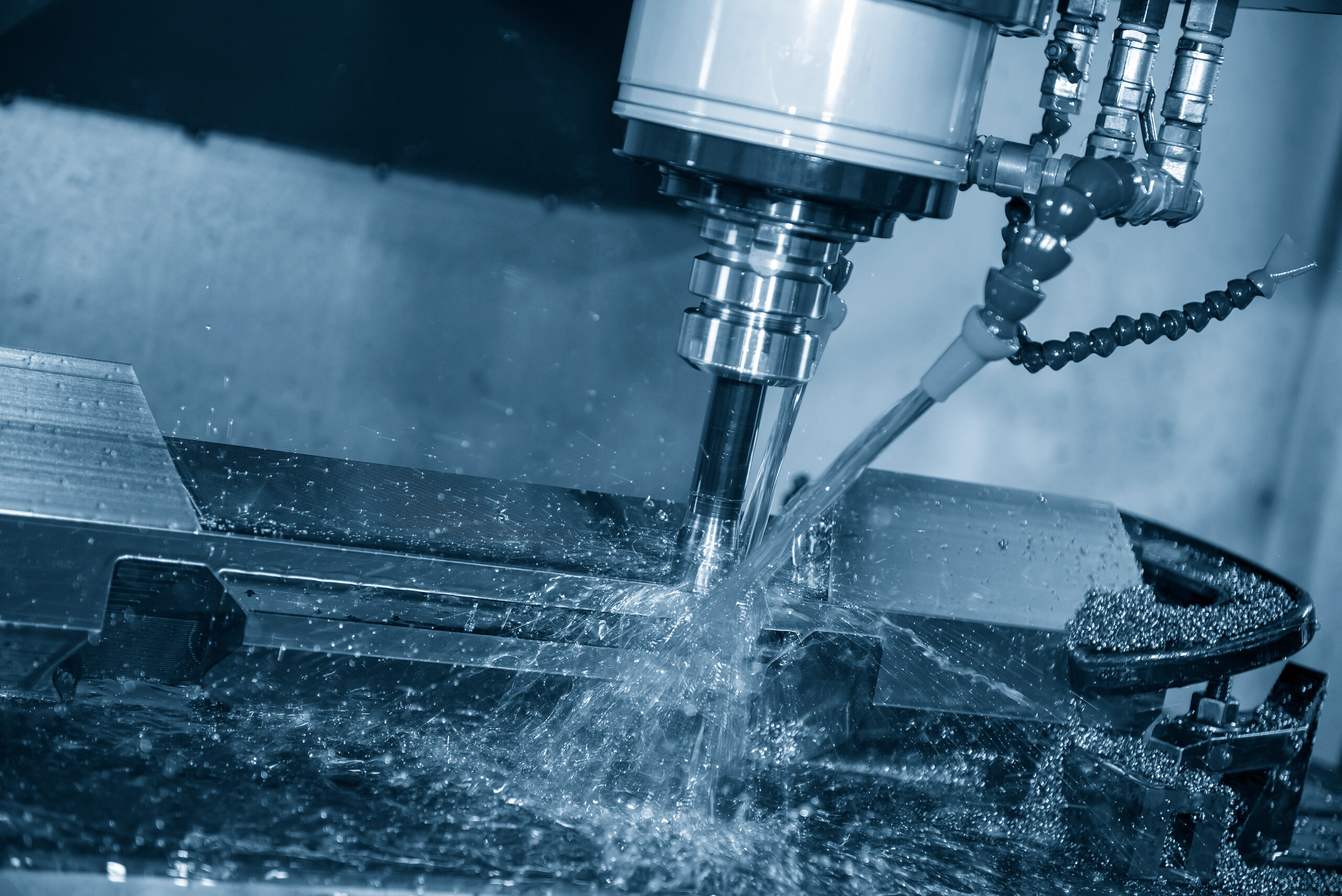What Are Some Common Materials Used In CNC Machining?
CNC, or Computer Numerical Control machining, is a high-precision and versatile manufacturing process perfect for producing medium to high volumes of complex machine parts. With the help of CNC, manufacturers easily and rapidly produce durable parts and prototypes for specific applications. Due to the technological advancements in machining, CNC machining is gaining popularity, and there is a wide range of CNC machine providers who provide the required parts in no time and with accurate precision.
The precision CNC machining services are flexible and can be used to produce prototype machining to high-volume and large-scale production. The reliable manufacturer offers high precision and excellent quality with little manual labor. One of the advantages of using CNC machines is their versatility, which means manufacturers can use various raw materials. This versatility gives engineers the freedom to create different prototypes. Most CNC materials are made up of metal as they are rigid and strong. So, what are these common materials used in CNC machining? Let’s get into the details.
Common CNC Machining Materials
Product teams have a wide range of options because CNC manufacturing can use anything that is hard enough for machining, whether metal or plastic. However, below are some of the most common CNC machining materials:
Aluminum
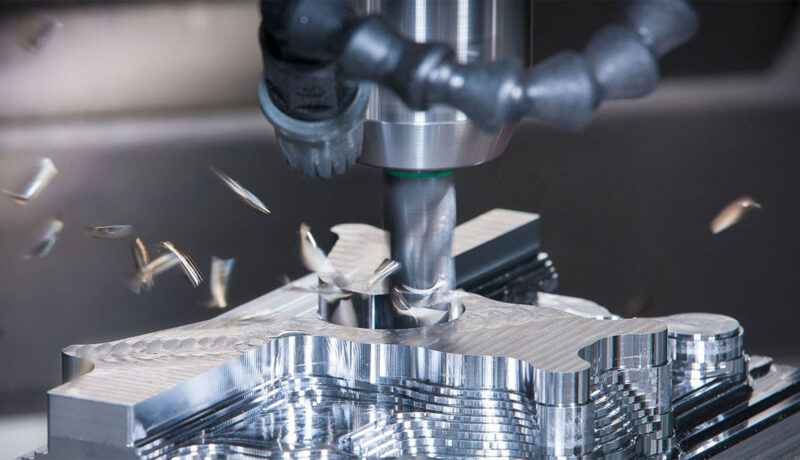
You must have heard or know that aluminum has been used in several industries over the years; for example, it is used in rocket components, cookware, automotive, medical, consumer products, etc. When it comes to CNC machining, aluminum is a fantastic choice as it is lightweight, machinable, corrosion-resistant, and strong.
In addition, aluminum alloys are also electrically and thermally conductive, which means they are perfect for use in electronics and thermal management applications. However, CNC projects made with aluminum might require some finishing or post-processing after machining.
Stainless steel
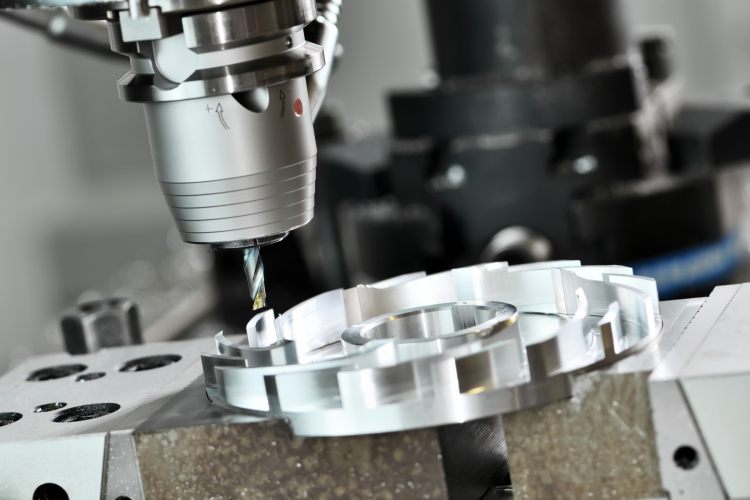
Stainless steel and its alloys resist corrosion, distortion, and wear. The 303 stainless steel consists of sulfur that improves machinability. Even though there are some restrictions, such as 303 stainless steel cannot be welded, heat-treated, and cold formed. The 303 stainless steel is perfect for manufacturing bolts, gears, nuts, shafts, and non-marine grade fitters.
Another option is 304 stainless steel which is non-magnetic, making it readily machinable, and it can be welded. When it comes to consumer products such as architecture, industrial applications, and kitchen accessories, 304 is considered best.
Carbon steel 1045
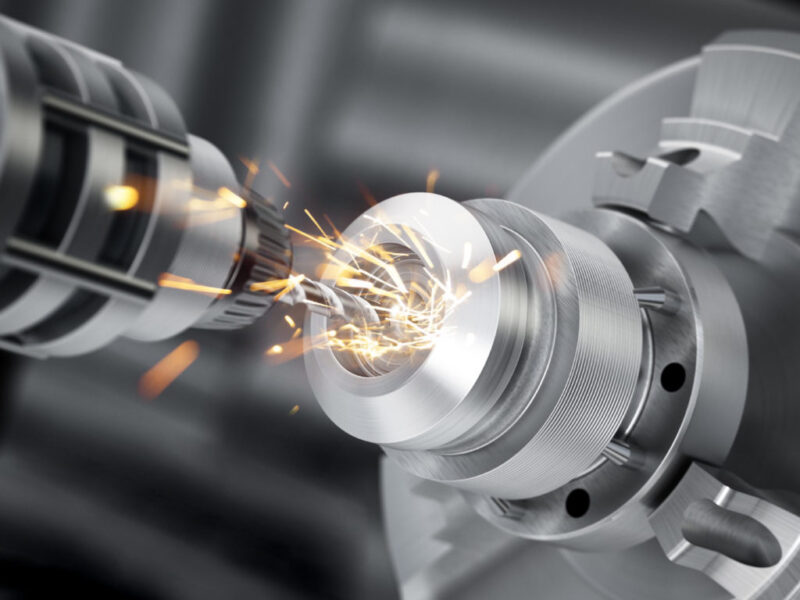
It is a mild grade of carbon steel. Most engineers and manufacturing machines use carbon steel 1045 as it is affordable and much tougher and stronger than stainless steel. It is easy to machine and can be heat-treated, hardened, and weldable. Carbon steel 1045 is ideal for producing shafts, bolts, gears, nuts, connecting rods, and small and strong mechanical parts.
Titanium
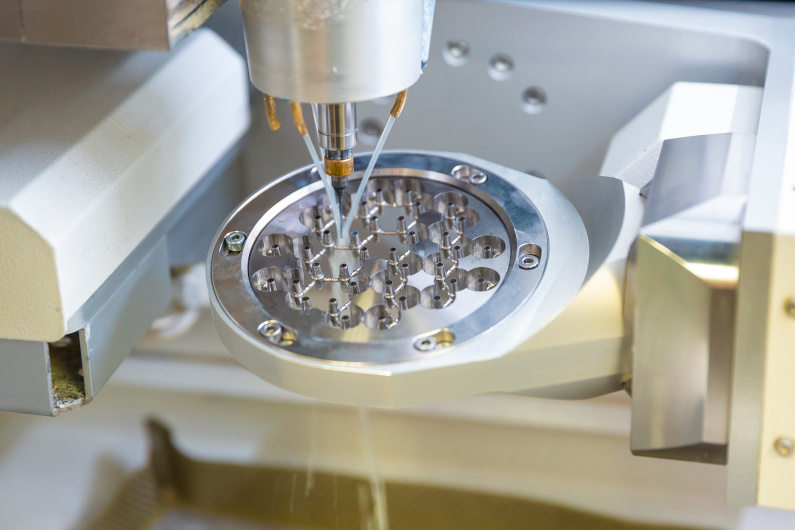
Titanium is known for its toughness, corrosion resistance, and strength. Titanium is mostly preferred to manufacture parts for demanding industrial, military, and aerospace applications. Since titanium is also biocompatible, it is also used in the manufacturing of medical devices. However, when compared to other metals, titanium is a bit expensive, and the machine requires special cutters.
Nylon
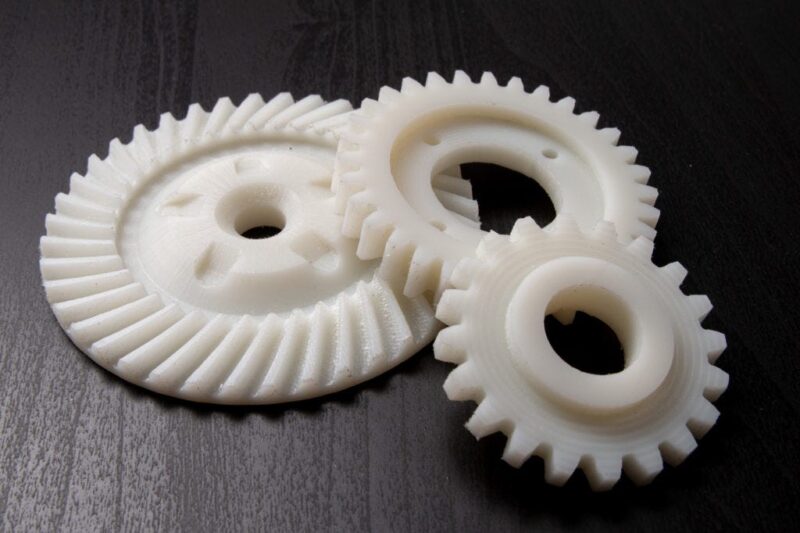
It is a low-friction and all-purpose thermoplastic, an alternative to the metals used in CNC manufacturing parts. Nylon is strong, chemical resistant, impact resistant, and also elastic. Since nylon responds well when fillers and additives are added, the engineers feel flexible to manipulate nylon and get the desired properties.
Some popular applications are food packaging, gears, fuel systems components, electrical molding, etc. However, it does absorb moisture, so that it might impact the dimensional stability of the produced part.
Copper
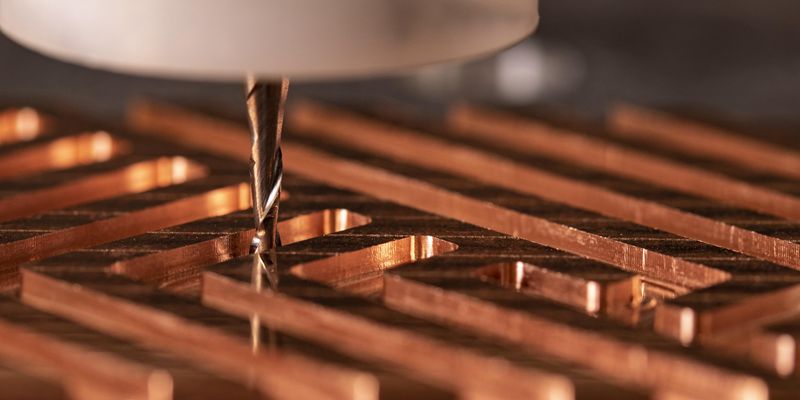
Copper in its pure form is not suitable for CNC machines as it has high malleability; however, there are copper alloys that are easy for CNC machines. For example, Copper alloy 101 is good for applications that require high-impact strength and thermal and electrical conductivity. Copper 101 is used in the manufacturing of gaskets, jewelry, superconductor magnets, marine hardware, vacuum equipment, and building materials.
How To Choose The Right CNC Machining Materials?
Since there is a wide range of materials to choose from, engineers have the freedom to choose the best materials for their projects. Selecting the right material depends on factors such as density, required strength, cost-effectiveness, etc. Before selecting the materials, there are several factors taken into consideration these are:
- Moisture: The first step is to see if the product is required to withstand freshwater or salt. Some metals ate resistant to corrosion, while some might require some additional treatments such as plating, painting, etc.
- Heat: Materials contract and expand in heat, so it can affect the parts if they are going to be subjected to cooling and heating cycles. As the parts become hot, they can become soft and flexible before they reach the melting point. So, one should always pick thermally stable materials if one has to go through several heating and cooling cycles.
- Strength: When choosing materials, product engineers usually consider tensile strength, toughness, load bearing or compression, and elasticity. All materials exhibit different forms of strength; therefore, it’s important to understand what your tolerance limitations are before selecting a material that has a sufficient safety factor well above those limits.
- Corrosion Resistance: You are aware that corrosion can occur due to water; however, other factors can lead to the parts’ corrosion. For example, when a metal interacts with substances such as acid, alcohol, etc., it can have an adverse chemical reaction, leading to corrosion. So it is best always to check if the material can withstand chemical exposure.
Conclusion
In conclusion, there is no doubt that one of the popular methods in the manufacturing sector is CNC machining. In this article, you have seen some common CNC machine materials such as stainless steel, carbon, aluminum, etc. CNC machining is gaining popularity because engineers can produce various complex parts with the help of CNC machines. Additionally, engineers must be careful and keep in mind the factors like strength, cost, moisture, heat, and corrosion resistance when they choose the material for machining.

